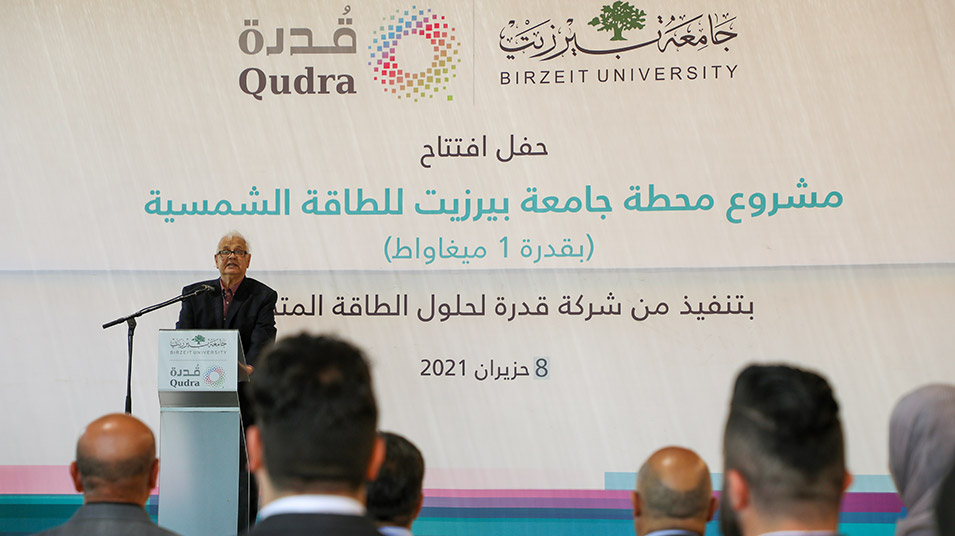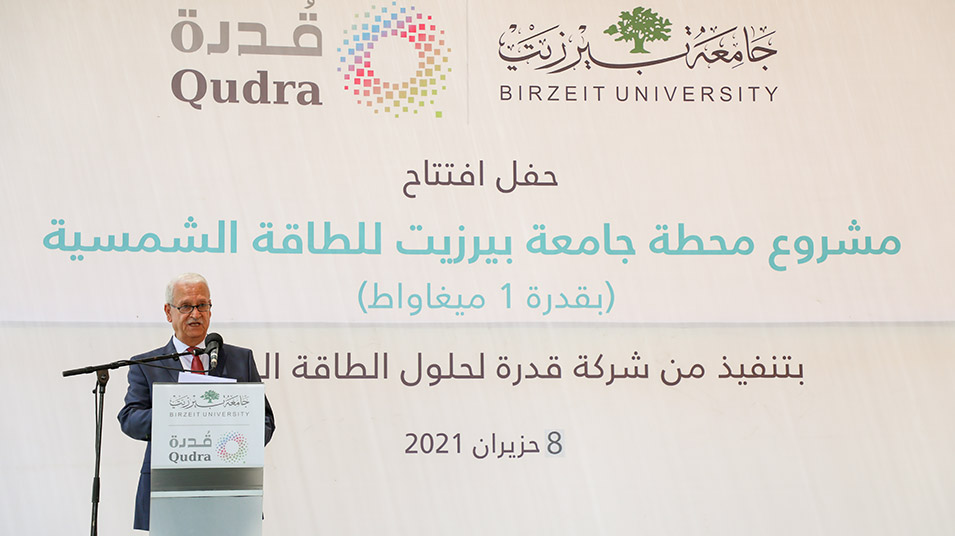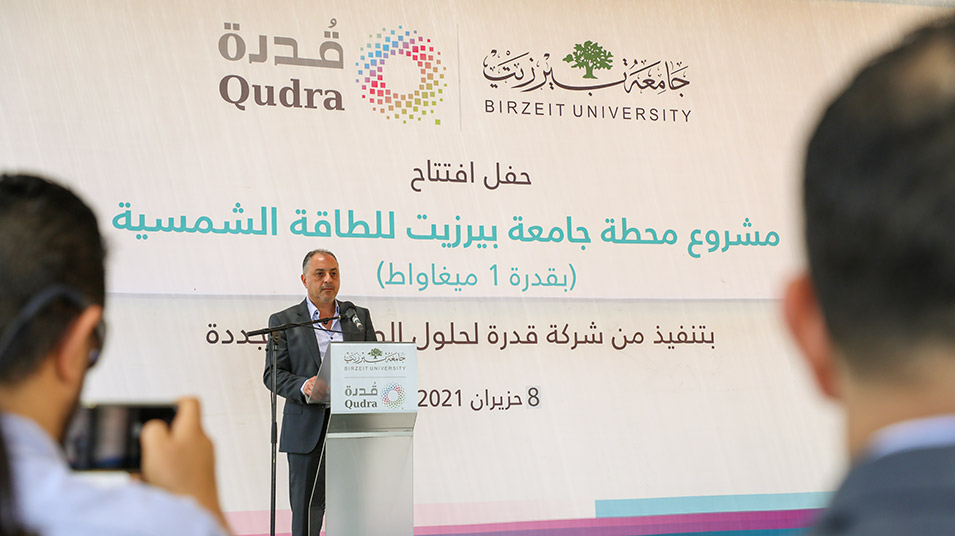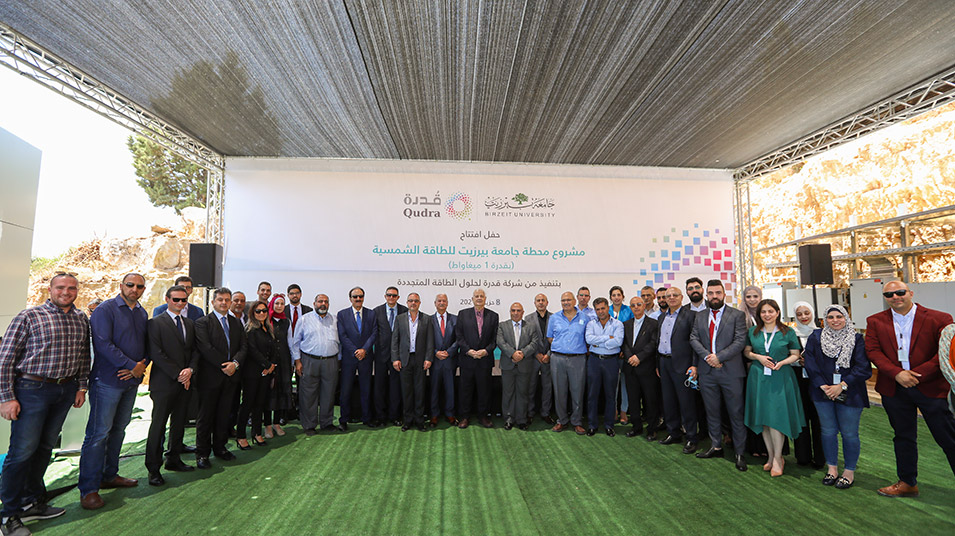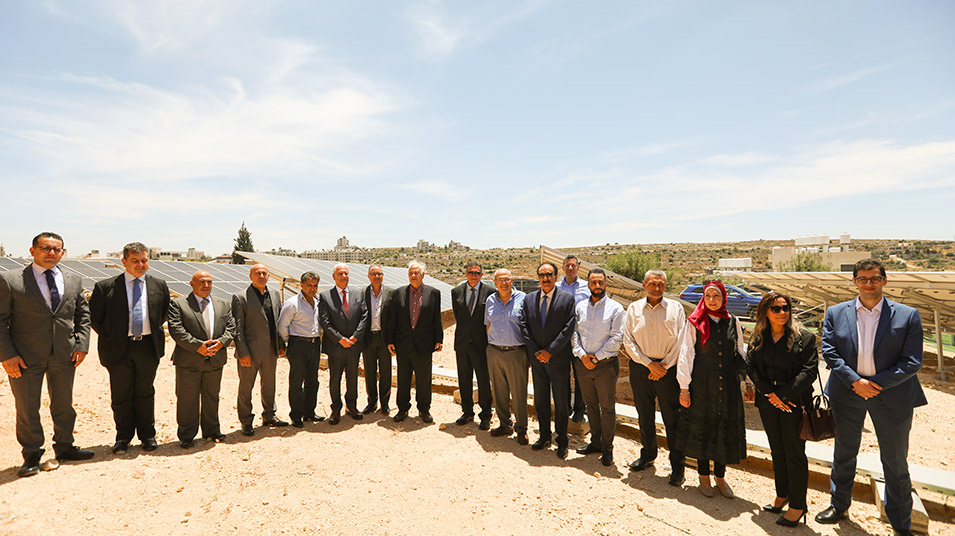Birzeit University continues push for clean energy with one-megawatt solar plant on campus
Birzeit University will now use clean, sustainable energy to power most of its campus as university administrators switch on a one-megawatt solar power station established together with Qudra, a Palestinian renewable energy solutions company, in an on-campus ceremony on Tuesday, June 8, 2021.
The recently completed solar power station is the latest part of a continuous effort by Birzeit University’s community to use, and develop, clean, efficient, and sustainable energy sources and lead the adoption of eco-friendly strategies and solutions in the Palestinian community.
The one-megawatt station is the biggest of a total of seven solar power stations on the university’s campus powering its various faculties, centers, and facilities. Together, the seven power stations produce approximately 1700 kilowatts, serving the majority of the university’s energy needs.
In his welcoming speech, Chair of Birzeit University’s Board of Trustees Dr. Hanna Nasir stressed the university’s commitment to clean, renewable energy, saying that the one-megawatt power station will reduce dependence on fossil fuels and energy sourced from the Israeli occupation as well as lower the university’s energy bill.
The advantages of solar power stations, added Nasir, make them particularly attractive as the future power source for Palestinian homes, offices, and institutions. He noted that with the help of the Jerusalem District Electricity Company — a key partner in establishing the university’s latest solar power station — such renewable energy plants could be neatly deployed across Palestine.
President of Birzeit University Dr. Abdullatif Abuhijleh emphasized the university’s commitment to clean, renewable energy in all aspects of its operation, from how it powers its campus to the academic programs that it offers and research projects it leads.
In addition to its investments in clean energy across the campus, Abuhijleh said, the university has also established a master’s program in renewable energy and a diploma in alternative energy, focusing efforts on theoretical as well as applied challenges in deploying clean energy in Palestine and the region.
Anan Anabtawi, general manager of National Aluminum and Profiles Company, which created Qudra as a joint venture with the Bank of Palestine Group, said that the one-megawatt power station was one of the ambitious projects carried out by Qudra, along with a one-megawatt station to power towns and villages near Ya’bad, in the Jenin governorate, and a 250-kilowatt solar power station in Jalbun, near Jenin.
Working with Palestinian institutions on projects that provide clean, renewable energy at reasonable costs, such as the solar power station at Birzeit University, exemplifies Qudra’s mission to provide renewable energy solutions that meet, and exceed, the highest local and international standards, added Anabtawi, saying that the company is proud to cooperate with Palestinian educational institutions on all levels.
Basel Yaseen, director of renewable energy at the Palestinian Energy and Natural Resources Authority, praised the creation of the solar energy station as an important step in the right direction towards sourcing 100% of Palestinian energy needs from sustainable sources. He noted that the Palestinian energy authority has recently created a national strategy for renewable energy in Palestine that aims to establish alternative energy sources capable of providing 500 megawatts of power by 2030.
Hisham Omari, the general director of the Jerusalem District Electricity Company, said that the solar power station project is part of a growing trend of energy source diversification in Palestine, which ensures the uninterrupted flow of power to Palestinian homes and institutions and narrows the gap between energy demand and production.
Currently, Omari noted, the Jerusalem District Electricity Company has 841 solar power stations connected to its electrical grid, with more than 98 megawatt-hours of clean energy being produced by the company’s photovoltaic power stations, reducing emissions by approximately 46,000 tons of CO2.


